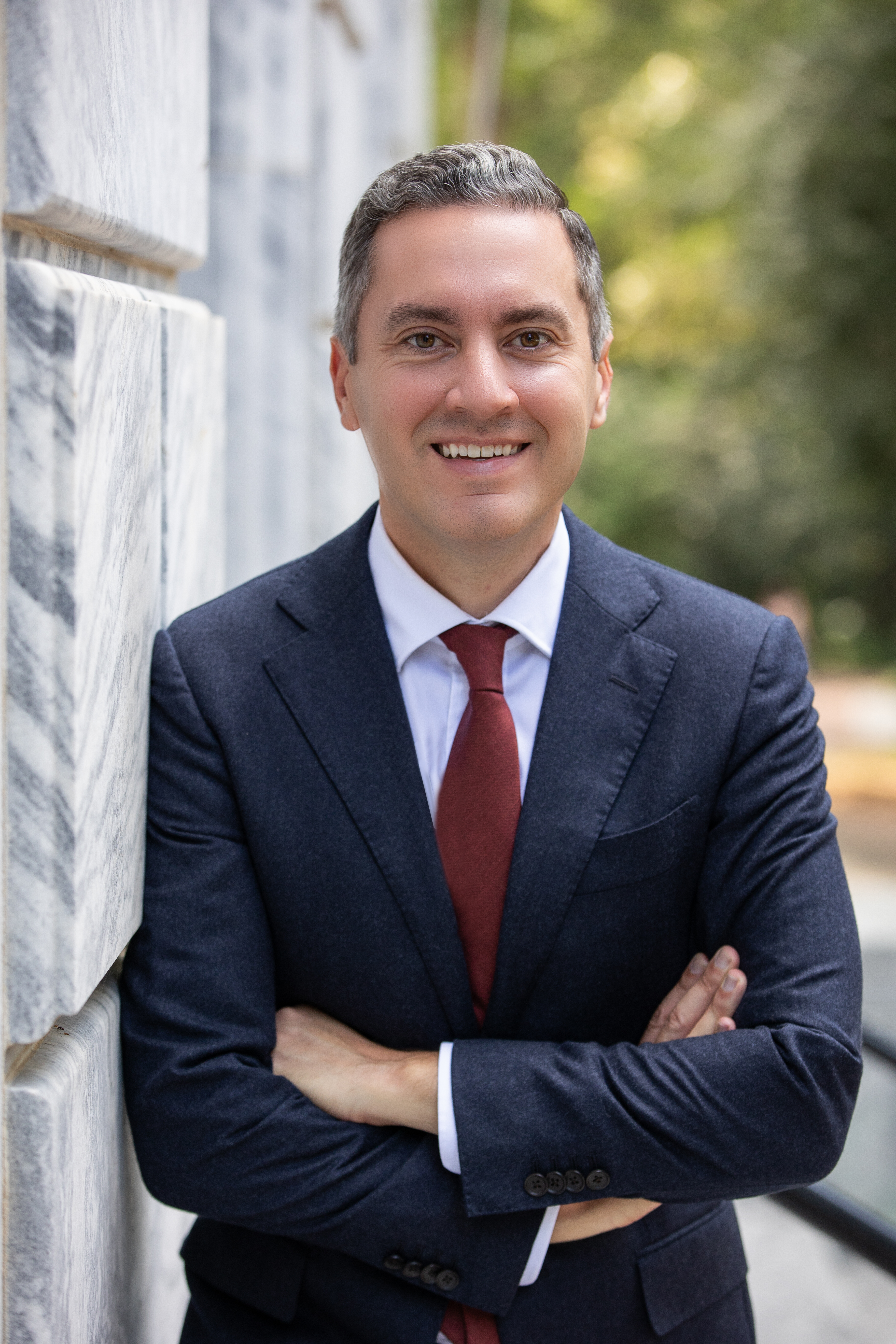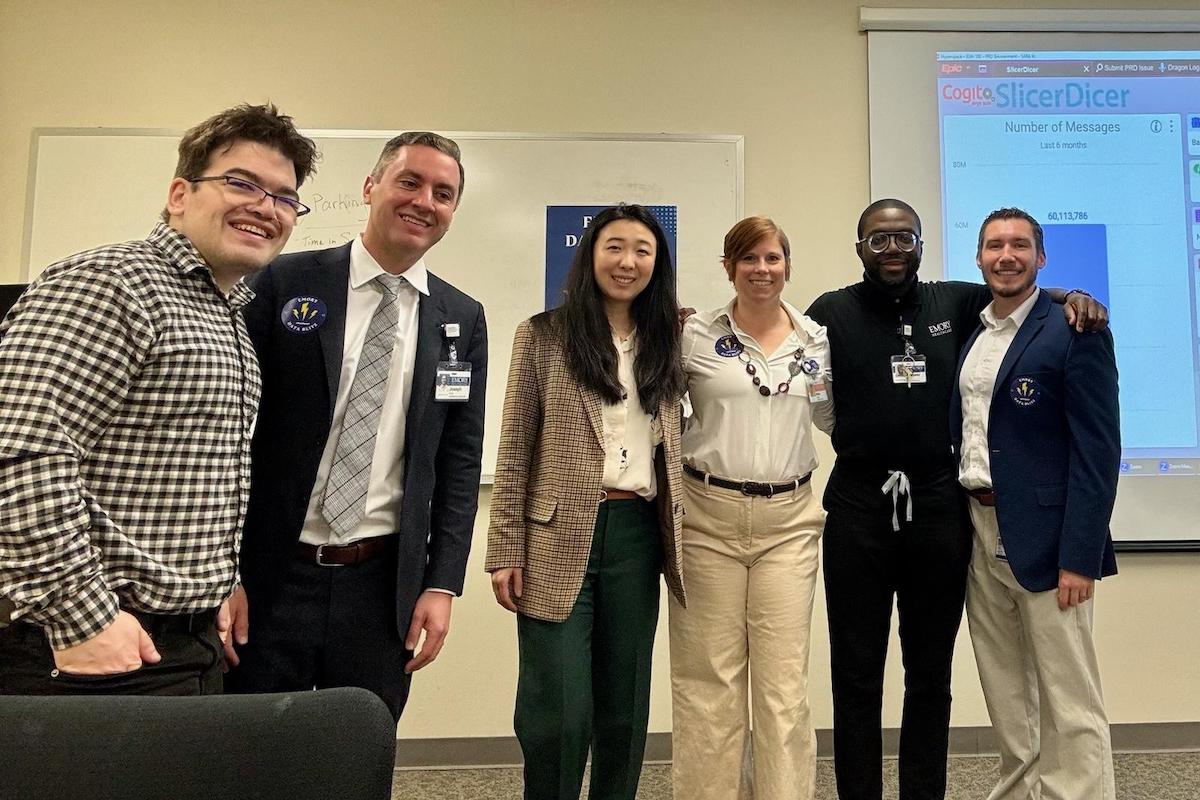In recent years, advancements in generative artificial intelligence (AI) have reshaped the technological landscape across industries, including higher education and health care.
Emory University has responded with substantial investments in AI, launching initiatives like AI.Humanity, Emory AI.Health, and the Center for AI Learning. As a member of the U.S. AI Safety Institute Consortium, Emory is collaborating with over 200 of the nation’s leading AI authorities to ensure responsible AI usage. The university has also integrated Microsoft Copilot, an AI chat service powered by OpenAI’s ChatGPT-4, to promote AI use and enhance data security across its systems.
In tandem with these efforts, Emory Healthcare is leveraging AI tools that improve medication management, minimize errors in patient records, and increase the speed and accuracy of medical note-taking. Last December, Emory Healthcare joined 27 other health care organizations in signing the White House’s pledge to uphold the safe, secure, and trustworthy use of AI in health care.

With a responsibility to harness data to improve health outcomes, Depa is working to enhance patient care, reduce clinician burnout, and drive Emory’s academic impact through cutting-edge research and education.
Depa answers questions about his time at Emory and shares his vision for the institution’s AI and data strategies.
What makes Emory unique in its approach to data and AI?
Emory is unique for several reasons. First, our data, which encompasses healthcare, research, and our exceptional students and faculty, offers transformative potential when used responsibly. With responsible use, this rich dataset has the potential to improve lives and provide hope to our communities.
Our data is also highly diverse. We have a diverse range of patients, research, and a student population that enhances our data’s quality and scope. This benefits not only Emory, but also our partners, like Children’s Healthcare of Atlanta, Grady Hospital, Duke, Vanderbilt and Mayo Clinic, by allowing them to access de-identified data for clinical trials that might not otherwise be available. These collaborations ensure clinical trials better represent the broader population.
Finally, our leadership team’s dedication to responsibly using data for the greater good was a major reason why I joined Emory.
What are your priorities in this role so far?
Over the past eight months, we’ve focused on two key areas. First, we’ve strengthened our foundational capabilities to enable data usage by meeting users where they are. We’ve engaged directly with hospitals and schools to understand the needs of providers, nurses, and faculty in their work environments. We’ve also introduced ‘data blitzes’ in our hospitals to educate staff on effectively using Epic, our electronic health record system.

Why is working on responsible AI so important to you?
My passion for responsible AI stems from my desire to use data for good, especially in cancer research. This passion began when my daughter was treated for, and sadly passed away from, acute myeloid leukemia. Her battle with cancer inspired me to dedicate my life to improving outcomes for patients.
Working at Emory allows me to stay close to where she received treatment. From my office window, I can see the hospital and transplant center that were integral to her journey. These places serve as constant reminders of the importance of my work and why I’m committed to advancing research that can save lives.
Many people are nervous about the potential harmful impact of AI. How do you address those concerns?
Responsible AI is central to everything we do. Our strategy includes several core principals, starting with developing responsible AI guidelines in collaboration with state and federal counterparts.
Transparency is another key aspect. We’re creating a public-facing website for our patients, providers, researchers, faculty, and students that details our responsible AI approach and data handling practices.
Finally, ongoing governance and monitoring is crucial. We’ve established a Responsible AI Governance Committee that includes representatives from all departments, to establish guidelines and best practices for responsible AI usage.
What excites you most about the upcoming year?
One of the things I’m most excited about is the concept of a unified data platform. This will centralize our data on a common platform with standardized definitions and prevent crucial research data from being isolated on individual devices. It will also enhance data security and empower our community to use data responsibly.
I’m particularly excited about opening these datasets to our community and democratizing access. We’re moving from a mindset of “I can’t find the data” to a proactive approach where data enables better patient care, advanced research, and reduces clinician burnout. By the end of summer, we hope to have a pilot in place, allowing researchers and teams across all faculties to analyze and use data directly.

